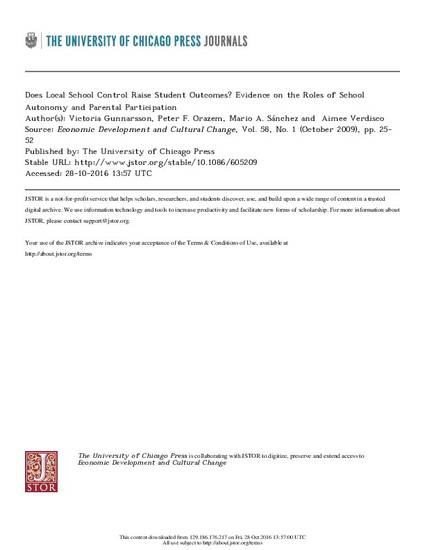
As early as 1962, international agencies such as the United Nations and the World Bank were advising that the decentralization of public service delivery could serve as a development strategy. The strategy has become even more prominent over the past 15 years, particularly in education.1 Decentralization efforts in developed countries include various programs in Australia, Canada, New Zealand, Spain, the United Kingdom, and in at least 44 states in the United States. Among the developing countries, Burkina Faso, Brazil, Chile, Colombia, El Salvador, Honduras, India, and Nicaragua have introduced new programs aimed at devolving power to the local schools. Even the autocratic government in Pakistan initiated an effort to devolve responsibility for school management to local authorities, removing a functioning democracy as a necessary precondition for school decentralization.
Available at: http://works.bepress.com/peter-orazem/61/

This is an article from Economic Development and Cultural Change 58 (2009): 25, doi: 10.1086/605209. Posted with permission.